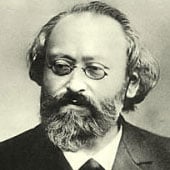BÚSQUEDA DE ÓPERA

Max Bruch
One year after fourteen-year old Bruch had seen the performance of his first symphony, he began studying composition and piano. This was made possible by a scholarship from by the Frankfurt-based Mozart Foundation, awarded for his string quartet. In 1858, still in Cologne, he produced his first stage work, the comical opera Scherz, List und Rache based on a play by Goethe and this was later followed by Hermione. After extensive travel through Germany and to Paris and Brussels, Bruch took on several posts - first as musical director in Koblenz, then as Kapellmeister at the court of Sondershausen and later as conductor of the Philharmonic Society in Liverpool. Eventually, having worked in Breslau for some time, he directed a master class for composition at the Berlin Academy. In the musical debates of his time, Bruch vehemently refused to accept the principles of the 'Neudeutsche' composition school and supported the values of tradition and folk music, which was expressed in his works by his use of Scottish, Celtic, Swedish, Russian and Hebrew tunes. In addition to his stage works, Bruch composed heroic oratorios such as Lied von der Glocke; notwithstanding all his great works, though, his popularity has to this day almost solely been connected with his first violin concerto in G Minor. Numerous awards and honorary positions show the reputation he enjoyed – despite the fact that his last works, still composed in a Romantic style in the wake of Mendelssohn, emerged about the same time as Schoenberg's first atonal works.
